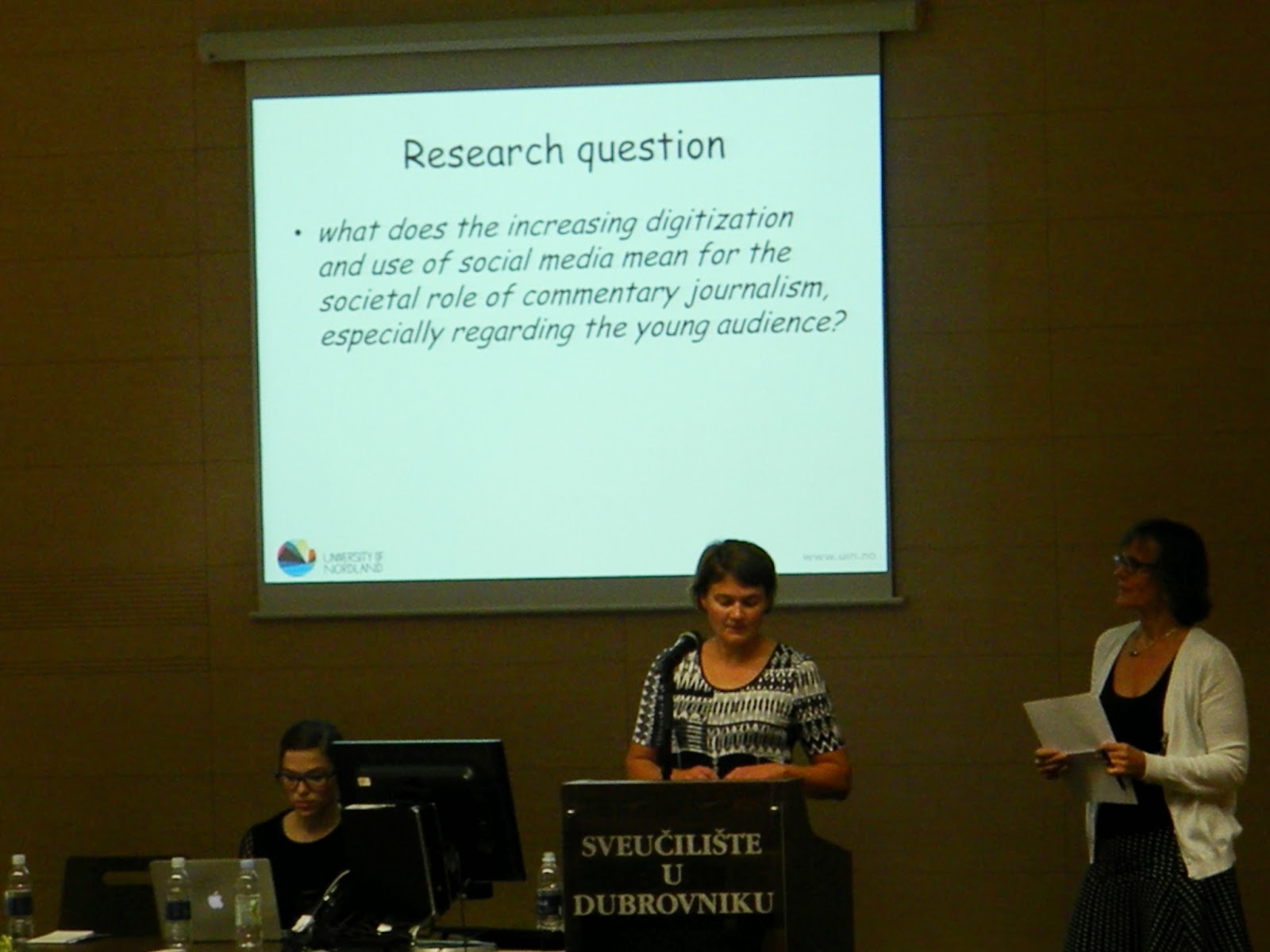Marju Himma-Kadakas, University of Tartu, Estonia
Impact of time acceleration on
online journalists’ skill performance
Marju Himma-Kadakas elaborate results of her study (interviews and
observations of newsrooms) which describe differences between theory
and practice about skills needed by Estonian journalists.
Features of modern journalists are:
- Hypeactivity
- Multimediality
- Technological acceleration
Decreasing number of person needed
to create information should create opportunity for personal
development - be more and more skillful in different aspects of journalism work. In
theory journalist should be both content and technology
skilled.
Author found that it is not true. Noways creating content is not as important as researching and
linguistic skills that give opportunity to quickly find information
translate it and send to audience. Marju Himma-Kadakas think that now in Estonia is no much time for personal development. Skills that are still needed are:
- communication in the mother and in foreign language
- digital competence
- cultural awareness and expression
dr. Lisbeth Morlandstø and dr. Birgit Røe Mathisen, University of Nordland, Norway
Commentary journalism online – a
way to capture the youth?
Dr. Lisbeth Morlandstø and dr. Birgit Røe Mathisen focused on approach of young
people to new media and on opportunities that sharing opinion via
Internet gives to society. Speakers found that young people are the most active participants on the new digitalized arenas, by producing contents and express their opinion, both in blogs and in digital debates Young people in Norway think that because of online
discussions they is more opinions and points of view in public debate – it is possible to hear voice of
miniorities or common people. Digital commentary’s creates more immediate contact and better dialogue with the readers. From that reason it has good influence
on democratization process.
Authors think that important role in this debate should have young professional debate moderators. Future shows does young people want to be and can be good coordinators and if media company also see the importance of their role.
Signe Ivask, Marju Himma-Kadakas, University of Tartu, Estonia
Burnout fostering young reporters to
resign journalism
In their speech authors share not only
their theoretical knowledge but also experience as journalists.
Topic of burnout is not new but because
of today media market in Estonia and technological changes young
journalists are especially vulnerable for it. The main reason of
burnout are:
- working all the time under time pressure. Situation when journalists live in stress all the time is especially harmful because they have no support from their coworkers (who also have non stop dead line so have no time for others).
- Unnatural rhythm of living. Journalists have no time for their private time or for their family, in their free time they are too exhausted or have free time when all other people are working.
In that situation it is no surprise that statistic in Estonia shows there are increasing number of burnout young journalists who no longer want to work in media system.
Authors think that the only long time
solution of this situation is changing the culture of media market from inside.




Nema komentara:
Objavi komentar